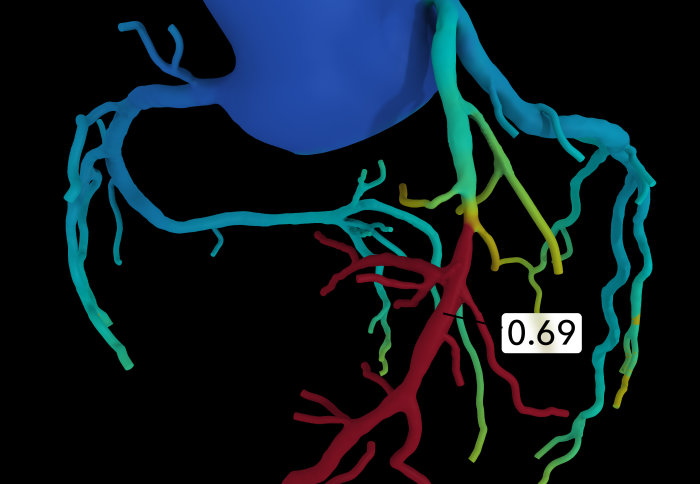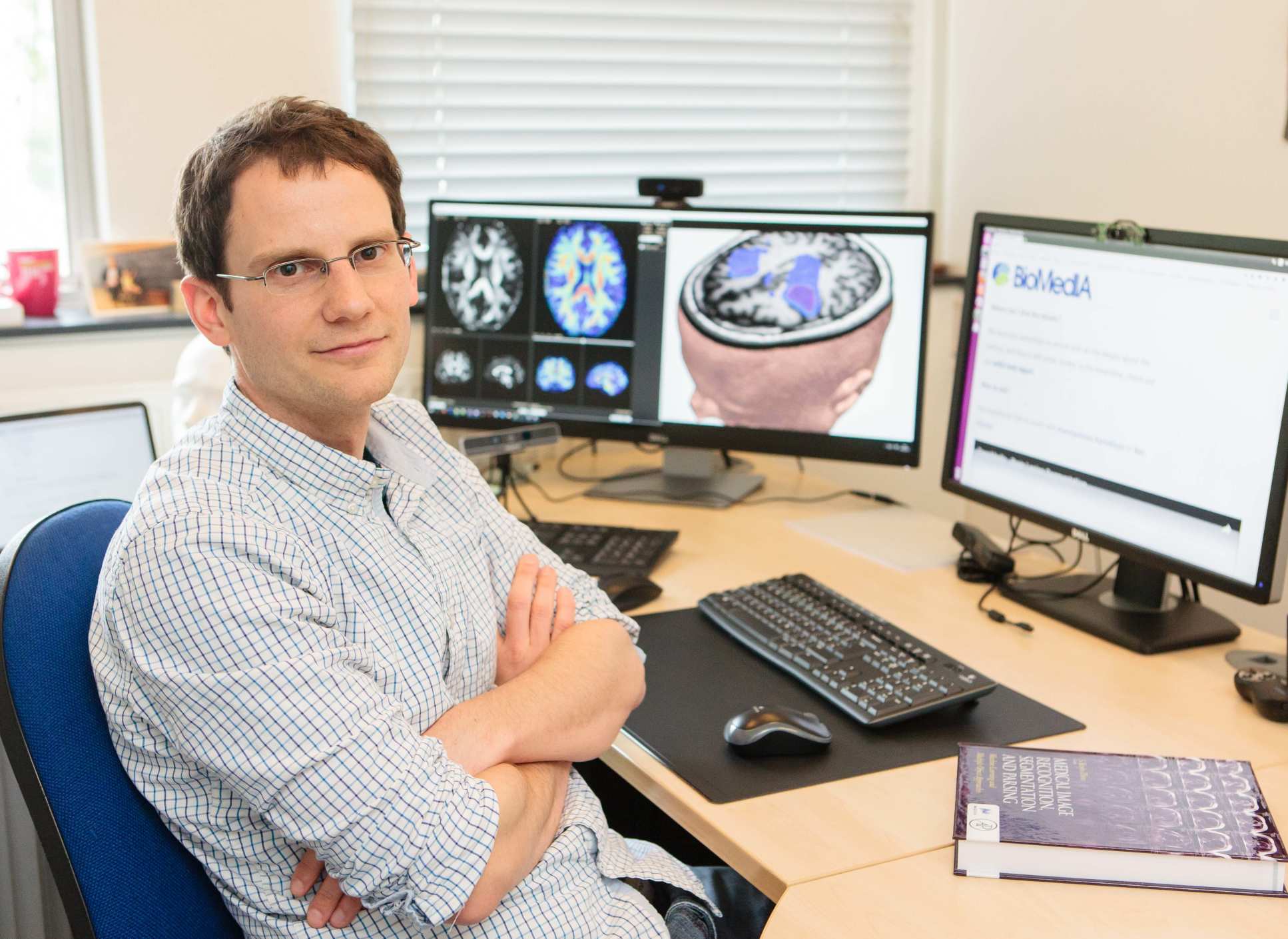Personalised heart disease diagnosis gets a boost with new collaboration

An example artery scan from HeartFlow
Patients could get improved diagnosis for heart disease due to a collaboration between Imperial and HeartFlow.
HeartFlow, a company based in California, offers a non-invasive method to detect and quantify blockages in arteries.
Blockages in coronary arteries can impact blood flow and cause chest pain, shortness of breath and heart attacks. Depending on the severity of the blockage, several treatment options are available, such as managing the condition with medication or performing bypass surgery.
This collaboration provides us with the optimal infrastructure to go beyond publishing papers and turn our ideas into new clinical solutions. Dr Ben Glocker
To know which option is best for each patient, clinicians need as much information as possible about the blockage and the resulting blood flow. HeartFlow have invented a system of using 3D scans of patients’ hearts to simulate blood flow and aid diagnosis.
Now, HeartFlow is partnering with biomedical imaging experts at Imperial to improve the ability of the technique to model blockages and blood flow. Together, they will develop new algorithms that ‘learn’ and improve as they analyse more data, providing more accurate models.
Real impact for thousands of patients
The collaboration will be led by Imperial’s Dr Ben Glocker and Professor Daniel Rueckert and will involve co-locating a HeartFlow team at Imperial’s Biomedical Image Analysis (BioMedIA) group.
Dr Ben Glocker, from the Department of Computing at Imperial, said: “The collaboration with HeartFlow will not only open new and exciting research directions, but it will also pave the way for bringing our latest deep learning technology into clinical practice and thus will have real impact on the healthcare of thousands of patients.
“This collaboration provides us with the optimal infrastructure to go beyond publishing papers and turn our ideas into new clinical solutions.”

HeartFlow will also fund additional research roles at the lab. The team will work on a joint project initially focused on developing algorithms for extracting models of the coronary arteries from 3D scans over time, improving alignment of images, and improving the precision of image acquisition and reconstruction.
Dr John H. Stevens, President and CEO of HeartFlow, said: “We are delighted to collaborate with the team at Imperial, who are globally recognized leaders in applying deep learning techniques to medical imaging.
“I have no doubt that the combined expertise of the HeartFlow and Imperial teams will help accelerate turning cutting-edge science into ground-breaking products that can positively impact in how patients with suspected heart disease are diagnosed and managed.”
Better biomedical images
Professor Daniel Rueckert, Head of Department of Computing and Head of the BioMedIA group at Imperial, added: “The HeartFlow collaboration is a new type industrial collaboration and we see great mutual benefit from a truly embedded team of scientists that will work closely with our academic staff, postdocs and PhD students. This model provides us new ways of attracting the best talent and offering exciting research opportunities.”
The mission of Imperial’s BioMedIA group is to develop novel, computational techniques for the analysis of biomedical images. Key areas of research include the development of algorithms for image acquisition, image analysis and image interpretation, and applying deep learning techniques to extract clinically relevant information from medical images.
Article text (excluding photos or graphics) © Imperial College London.
Photos and graphics subject to third party copyright used with permission or © Imperial College London.
Reporter
Hayley Dunning
Communications Division